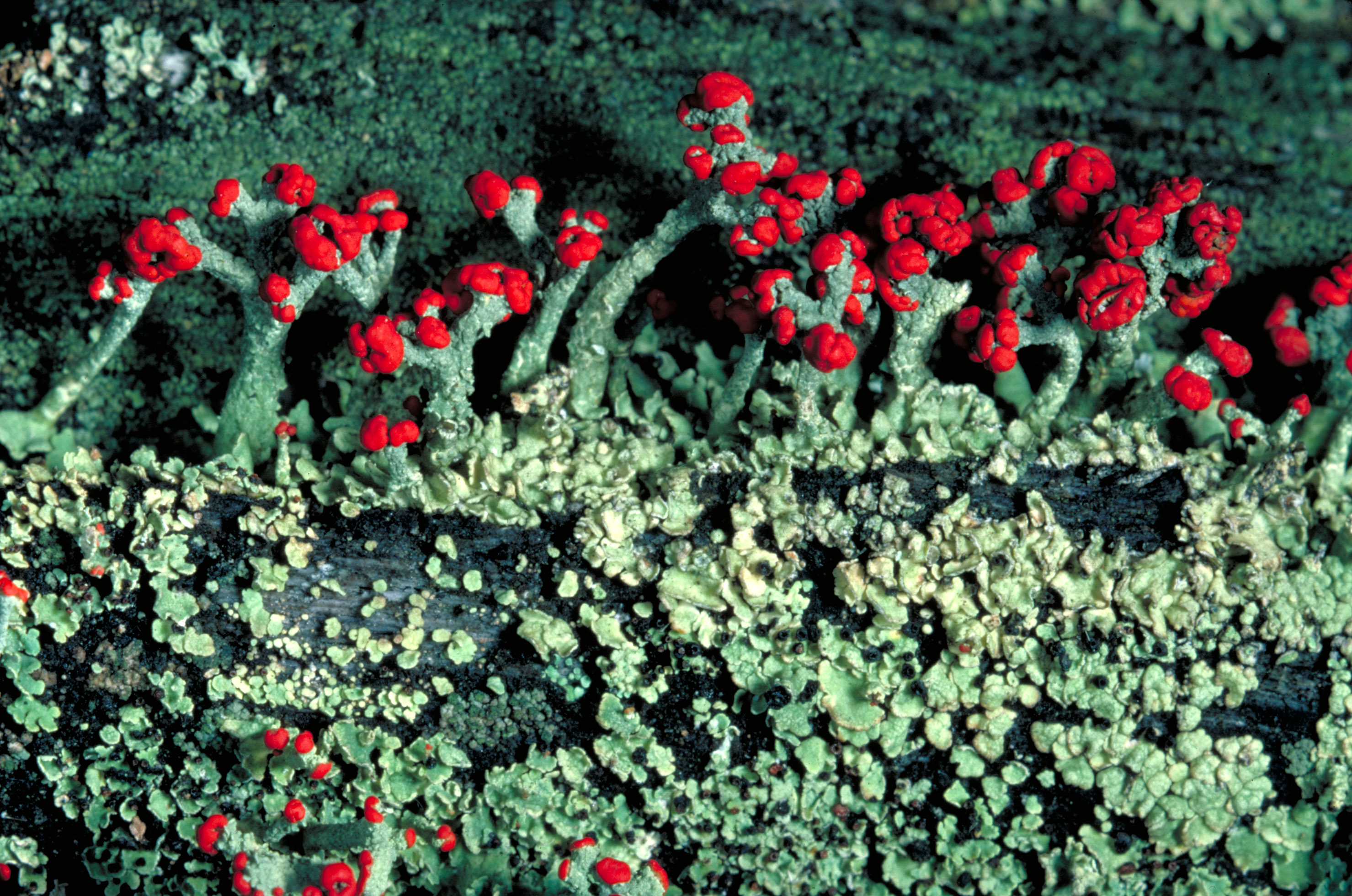
I rarely ever notice the kind of car a person is driving, or the clothing they are wearing. Yet from the first time I was exposed to a tiny lichen on a piece of rotting wood, I was enchanted by its beauty. It had short shafts of pale gray-green with tips of the brightest, purest red I’ve ever seen in nature.
But then, I’ve often noticed the tiny things are often the most beautiful, if you look at them closely.
Soldier Moss
Soldier moss is also known as British soldier. The red tips are referred to as fruiting bodies. Although the comparison is not quite the same, the mushrooms we eat are just the fruiting body. The essential part of the fungus is called the mycelium.
Actually, Soldier moss is not a moss at all, but a lichen. A lichen consists of two symbiotic components. One is a gray-green fungus substrate, current Latin name1 Cladonia cristatella. The red algae coat is Trebouxia erici. It ranges the entire eastern part of North America.
What Is It Good For?
Sadly, lichens suffer greatly from industrial air pollution. However, this unfortunate occurrence informs us that lichens can be used to monitor that very pollution, much as the death of a canary once warned miners of methane gas in the mines.
In addition, Soldier moss helps break down rotten wood. It also, as some other plants do, helps fix nitrogen for plant use. Finally, it is a tasty treat for certain wildlife.
From my perspective as an organic chemist, it would be interesting to learn what substances might be found in Soldier moss. What use could those substances in the lichen be applied to?
1 Scientists change Latin scientific names if they view a former classification as incorrect.
Note: You might also enjoy Discovering Dragon’s Arum in Nelson, Virginia
References:
- Encyclopaedia Britannica: British Soldiers Lichen
- Australian National Herbarium: The Mycelium
- Berkeley University: Lichens: Life History & Ecology
- North Country Farmer: The British Soldier Lichen
- USDA Natural Resources Conservation Service: British soldier lichen